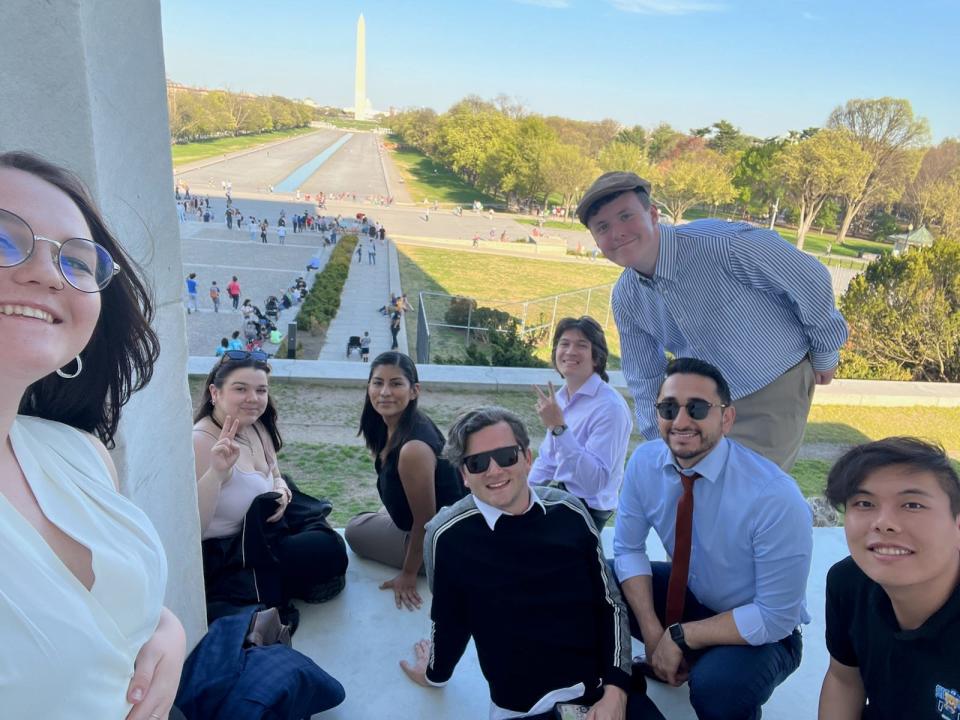UNF students: Urgent action needed to avert coming global water crisis in next 7 years

As Floridians, we are surrounded by water. From our famous beaches to the vast and diverse Everglades, water is a vital part of our lives. However, the looming global water crisis threatens to disrupt our world as we know it, with catastrophic effects on all aspects of life. By 2030 — just seven years from now ― half of the world's population could be without access to clean and safe water if drastic measures are not taken.
With a growing population, a large agricultural sector and a heavy reliance on tourism, water is vital to Florida. It's time for the United States to step up and become a leader in the global response to this impending crisis.
The U.S. Global Water Strategy was mandated under Congress in 2014, and the Biden administration launched its White House Global Water Security Action Plan in 2022 to provide universal access to clean water, sanitation and hygiene.
UNF students: Another war in Bosnia threatens global stability and U.S. must intervene
Leading the way forward: New Community Foundation chief a 'bright star' in philanthropy, proud son of Flint, Mich.
Letters: Jax Beach voters say ‘NO’ to taller buildings, 'YES' to thriving future
The original strategy promotes the management and protection of water resources to support economic growth, reduce the risk of instability and promote sharing of water resources to avoid future conflicts. However, the world is still facing a crisis less than a decade later.
This semester, our class studied today’s crises and chose to elevate the water crisis. We presented our recommendations to officials across Washington and demanded progress to save the planet. At the start of this semester, we had no idea of this looming catastrophe, so education is key. The White House must raise awareness by launching a social media campaign focused on galvanizing the youth to take action.
Global efforts have been most successful when the youth are engaged, such as Singapore’s successful water conservation campaign. Celebrities can help, such as MrBeast and Selena Gomez, who are involved with organizations such as the Arbor Day Foundation and UNICEF.
It isn’t common knowledge, but water is used to produce almost everything. For instance, it takes an average of 40,000 gallons of water to produce a car and 2,000 gallons of water to produce a pair of jeans. The U.S. should require labels on all manufactured goods specifying how many gallons of water were used, labeled “Water to Produce.” Similar to cruelty-free labels, they will help raise awareness and promote conservation.
Women and girls suffer most from lack of access to clean water, as well as menstrual hygiene products, which keeps them from work and school. One in 10 girls miss school due to lack of the latter. The U.S. should push the United Nations to integrate providing free menstrual products globally as part of its effort to meet the Sustainable Development Goals designed to eradicate extreme poverty by 2030.
This will help put women at the table where the decisions are made, at jobs to support their families and children in school. History shows that when women are involved in solutions, the outcomes are better and solutions last longer. They should be front and center at local solutions on water resources, as well.

Sadly, we are wasting this precious resource. The average U.S. household leaks about 10,000 gallons of water a year ― about 1 trillion gallons total. The U.S. loses 17% of its utility water to leaks and the global agricultural system is quite inefficient.
It is time we put a cost to water wasted. We should pilot a project such as the one in Aarhus, Denmark, which charged utilities for every cubic meter lost above 10 percent. It reduced its water usage substantially to just half of what the U.S. still loses. Aarhus alone saved $35 million in one year as opposed to their conventional methods. The U.S. can phase in costs over the next decade from 15% to 10% of leaked water for all utilities, agriculture and corporations.
We need to put a price on water here at home, as well. Florida’s precious aquifers’ spring water is being given to companies almost for free, part of a $94 billion industry using these public resources. For instance, Nestle, which owned Zephyrhills until 2021, is one of the most egregious examples of water thievery in Florida. The multi-billion-dollar company paid a paltry one-time fee of $115 for unlimited access to the aquifer, one of multiple such deals in our state.
This happens across Florida, indeed all over the country and the world. Not only should companies pay a fair price for the water used, but over time this practice should end, so this resource is preserved for families (not corporations). This means our generation must end its use of plastic bottles.
We have no time to waste. As Floridians, we are on the front lines of the water crises, uniquely positioned to lead in water conservation. Bold actions are required not only from our politicians but also from our business leaders and everyday citizens. Our generation inherited this crisis ― but it is now our job to demand a solution.
UNF students visited Washington, D.C., in April and presented their recommendations to officials at the Defense and State departments; the National Security Council; the Environmental Protection Agency; the staff of Senator Rick Scott; the Woodrow Wilson Center; and the Center for Strategic and International Studies, as well as UNF alumni currently working in D.C.
This guest column is the opinion of the author(s) and does not necessarily represent the views of the Times-Union. We welcome a diversity of opinions.
This article originally appeared on Florida Times-Union: Half of world's population could be without water by 2030

